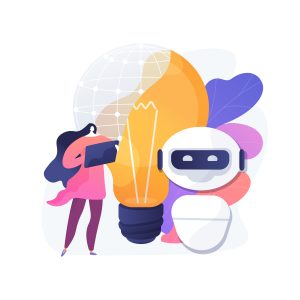Introduction
As 2026 approaches, AI agents are no longer experimental tools they’ve become a core pillar of enterprise automation and decision-making. Businesses across industries are now racing to integrate intelligent agents that can automate workflows, enhance customer interactions, and deliver predictive insights.
But with so many vendors emerging, one question dominates the market:
👉 How do you hire the right AI agent development company that truly fits your 2026 business goals?
This guide helps you navigate the evaluation process, key factors, and strategic considerations before partnering with a development company.
1. Understand Your 2026 AI Business Objectives
Before hiring an AI agent development company, businesses must define why they need AI agents and what outcomes they expect by 2026.
Ask these questions internally:
-
Do you want AI agents for workflow automation or customer engagement?
-
Are you looking to integrate AI agents with ERP, CRM, or data analytics systems?
-
What is your target ROI or efficiency goal?
Having clear objectives ensures that your AI development partner aligns with your strategic priorities instead of offering generic automation.
2. Look for End-to-End AI Agent Development Expertise
A top AI agent development company should offer a full spectrum of services, not just model training.
Key capabilities to look for:
-
Custom AI agent design (tailored to business functions)
-
Natural Language Processing (NLP) and context-aware understanding
-
Integration with enterprise ecosystems like Salesforce, HubSpot, or SAP
-
AI governance and compliance support
-
Post-deployment monitoring and optimization
By 2026, AI agents are expected to collaborate across departments, not just automate single tasks—so your vendor must have a multi-domain approach.
3. Evaluate the Company’s Technical Stack and Experience
The right AI partner will leverage modern frameworks and agentic architectures.
Ask your potential AI agent development company about their tech stack:
-
Which LLMs (Large Language Models) or agent frameworks they use (e.g., LangChain, AutoGen, OpenAI, or Claude-based agents).
-
Their experience in building enterprise-grade scalable AI systems.
-
Their approach to data privacy, security, and compliance (especially for finance, healthcare, and retail).
A technically advanced partner ensures your AI infrastructure is future-ready for evolving business needs.
4. Assess the Level of Customization Offered
Every enterprise has unique challenges. Off-the-shelf AI solutions might not align with your business workflows or data ecosystem.
Opt for a custom AI agent development company that focuses on:
-
Tailored agent architecture aligned with your business logic
-
Integration-first design with your digital stack
-
Domain-specific training data for improved performance
This ensures the AI agent acts as a strategic asset, not just a tool.
5. Check the Company’s Past Projects and Case Studies
Before signing a contract, analyze the company’s portfolio, case studies, and testimonials.
Look for:
-
Proven experience in enterprise-level AI implementations
-
Case studies showing quantifiable ROI improvements
-
Success in AI workflow automation or customer support transformation
A company that has built AI agents for multiple industries like banking, healthcare, and manufacturing—will bring valuable cross-domain expertise.
6. Evaluate Collaboration and Communication Models
A truly efficient AI agent development company should function as your strategic partner, not just a vendor.
Consider how they handle:
-
Project management and communication frequency
-
Transparency in deliverables and timelines
-
Ongoing model retraining and support
Strong collaboration ensures that your AI agents evolve alongside your business especially crucial in 2026’s fast-paced digital landscape.
7. Prioritize Scalability and Long-Term Partnership
Building an AI agent isn’t a one-time task—it’s a long-term investment.
Choose a company that:
-
Supports model scaling and API expansion
-
Offers AI lifecycle management and model updates
-
Can help integrate future technologies like autonomous multi-agent systems or RAG (Retrieval-Augmented Generation)
A long-term partnership ensures that your AI strategy remains relevant as business needs evolve.
8. Measure Cost vs. Value Alignment
While budget matters, lowest cost doesn’t mean highest ROI.
The focus should be on:
-
Strategic value — How much efficiency or insight does the AI agent add?
-
Implementation support — Does the company provide post-deployment training?
-
Sustainability — Will the system adapt to new data and workflows by 2026?
A good AI agent development partner helps you optimize for value, not just price.
Conclusion
In 2026, success in digital transformation will heavily depend on how intelligently a business adopts and manages AI agents.
By partnering with the right AI agent development company, you can achieve:
-
Smarter decision-making
-
Automated enterprise workflows
-
Enhanced customer satisfaction
-
Stronger ROI on AI investments
The future of business automation isn’t just about using AI it’s about hiring the right partner who can make AI work strategically for you.
 :
https://pinterest.com/elizasmiths870
:
https://pinterest.com/elizasmiths870












